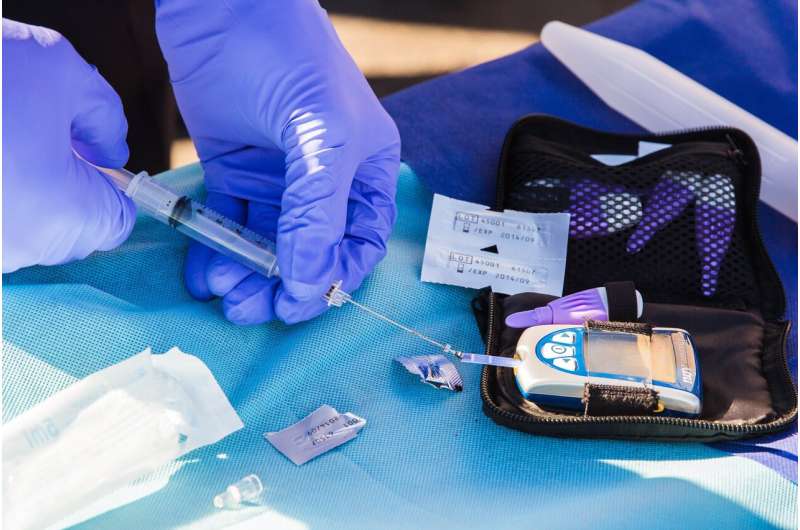

New research suggests lung infections could trigger the onset of type-1 diabetes, the auto-immune condition that leaves a person unable to produce enough insulin to keep their blood sugar in a normal range. Hunting for patterns in vast databases of genomic data, scientists led by Professor Justin O’Sullivan used machine learning to rank genetic mutations associated with type-1 diabetes according to the size of their disease effects acting through different tissues in the body.
This resulted in the unexpected finding that the biggest impacts occurred to genes in the lung. Their study, published in the journal Communications Biology, is the first to uncover the link. The researchers are from The Liggins Institute at the University of Auckland, in New Zealand.Everyone knows that the pancreas is key in diabetes, because that’s the organ that makes insulin,” says Professor O’Sullivan. “But what’s really striking is that the mutations that are linked to the biggest risk of developing the disease affect genes in another tissue entirely—in the lung.”The results support a theory that respiratory viral infections can trigger the onset of type-1 diabetes. If the theory proves correct, drugs could be developed to target the key genes and slow the onset of the disease.”It’s really a tantalizing piece of information,” says Professor O’Sullivan. “This looks like a very important connection. Could we someday see a vaccine that protects some people against developing type-1 diabetes? That would be amazing.”
Ph.D. students Daniel Ho and Denis Nyaga were key researchers on the project. Daniel developed the machine-learning approach that looked for patterns in millions of pieces of genetic data from thousands of individuals, with and without type-1 diabetes. “The machine learning enabled us to pull patterns out of the DNA together with related biological information from thousands of people, that we couldn’t detect any other way because there is just too much data for us to look at,” says Daniel Ho.Diabetes is surging globally, proving to be one of the major health challenges of the 21st century.In New Zealand type-1 diabetes accounts for five to eight percent of all diabetes diagnoses, affecting as many as 26,000 people.
Source: Read Full Article